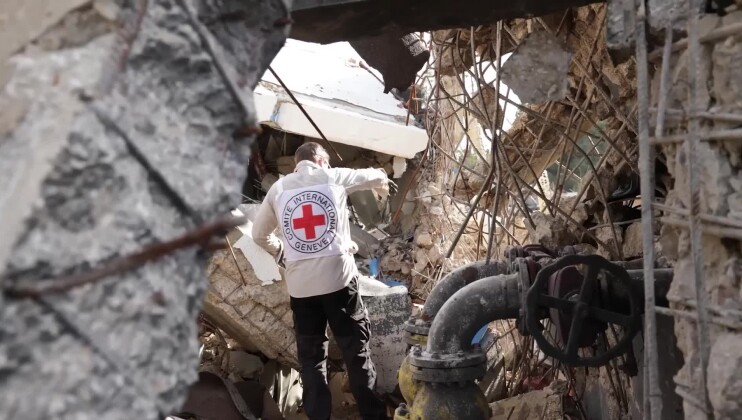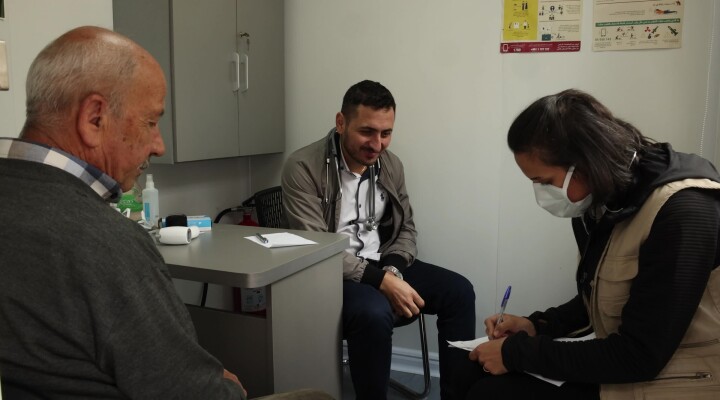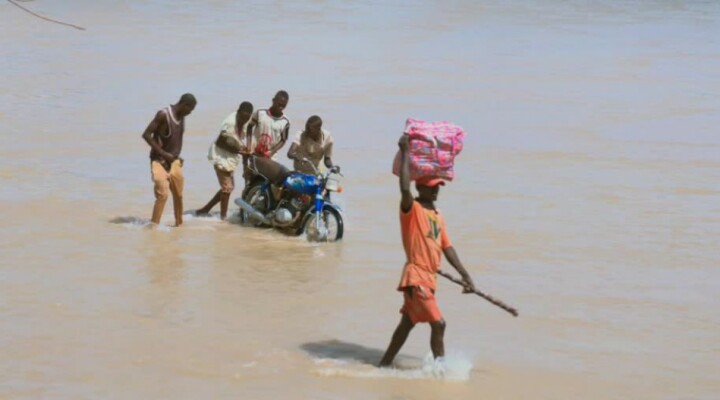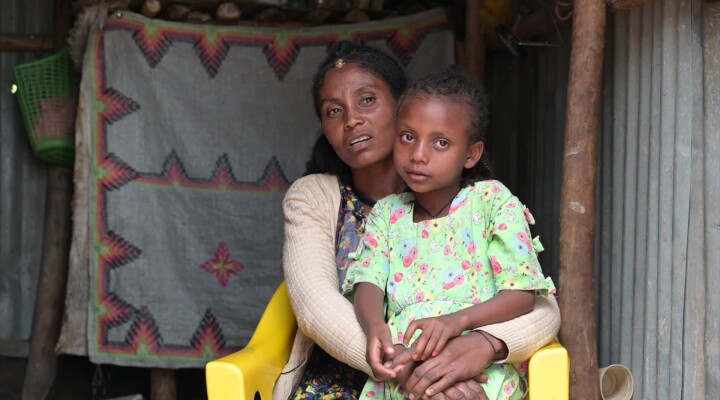75 Years of the Geneva Conventions - Seeking to Mitigate the Cruelty of War
The Geneva Conventions, crucial international treaties regulating armed conflict, mark their 75th anniversary on August 12. These treaties form the backbone of international humanitarian law (IHL), a set of rules seeking to limit the effects of armed conflict by limiting the means and methods of warfare and safeguarding those not or no longer taking part in hostilities.
Among others, the Geneva Conventions mandate humane treatment for people who are detained, prohibit torture and sexual violence, require medical care for the wounded and sick, protect medical personnel and facilities, and uphold the dignity of the deceased.
The Geneva Conventions are now universally ratified, representing a universal acknowledgment that war needs rules to limit its devastating impact on humanity. The strength of the world’s agreement on these rules to limit the human cost of war should not be underestimated. The world has no stronger tool at its disposal to use in times of war to protect victims of armed conflicts.
Today, the Geneva Conventions continue to be essential. They remind us of the importance of upholding humanity amid the horrors of war. However, despite their vital principles, international humanitarian law (IHL) faces significant challenges.
“Now 75 years old and universally ratified, the Geneva Conventions are the backbone of international humanitarian law. But they are disregarded and undermined much too often”, said Mirjana Spoljaric, President of the International Committee of the Red Cross (ICRC).
“This is why I call on the States of the world to comply with the Geneva Conventions and to make them a political priority. I also call on all parties to armed conflicts, to respect international humanitarian law following the obligations they have. Without excuses”, she added.
In fact, notwithstanding the universal ratification of the Geneva Conventions, IHL is not universally respected, causing immense suffering and destruction. Furthermore, the emergence of overly permissive interpretations erodes IHL’s protective force. All this is compounded by one of the most worrying features of conflict: the dehumanization of both combatants and civilians. And the deployment of new technologies may worsen these dangerous tendencies. Despite these concerns, IHL remains a crucial tool for reducing the human cost of conflict.
The Geneva Conventions and IHL in general are a common denominator of humanity and ensure that everyone, even an enemy, is treated as a human being. In the past 75 years, they have saved countless lives and preserved dignity in war. The effects of armed conflict are horrific for combatants and civilians. Yet when parties respect the law and its spirit is upheld, lives are saved, detainees maintain their dignity and families stay in touch with their loved ones.
Over the next 75 years, the world needs to see robust adherence to the Geneva Conventions, and the honouring of the commitments made on August 12, 1949.
For further information please contact:
Chris Hanger, ICRC Geneva, Tel: +41 79 731 04 03, changer@icrc.org
Loglist:
00:00:00 --> 00:00:24
Geneva Conventions signatures in 1949, Switzerland - 10 shots
00:00:24 --> 00:00:55
Soundbite Mirjana Spoljaric Egger, President of the ICRC
Where are the peacemakers? As I look at the destruction in Gaza, the relentless conflict in Ukraine, and the suffering in Sudan and elsewhere, I think: Where are the leaders championing negotiations? Seize every chance to de-escalate. The faithful application of international humanitarian law can bolster peace initiatives. We must reduce suffering and protect humanity from further destruction.
00:00:55 --> 00:01:28
Soundbite Mirjana Spoljaric Egger President of the ICRC
Now 75 years old and universally ratified, the Geneva Conventions are the backbone of international humanitarian law. But they are disregarded and undermined much too often. This is why I call on the States of the world to comply with the Geneva Conventions and to make them a political priority. I also call on all parties to armed conflicts, to respect international humanitarian law following the obligations they have. Without excuses.
00:01:28 --> 00:01:45
Internally displaced people fleeing, Iraq - 4 shots
00:01:45 --> 00:02:05
Internally displaced people fleeing, Democratic Republic of the Congo - 4 shots
00:02:05 --> 00:02:28
ICRC food distribution for internally displaced people, South Sudan - 4 shots
00:02:28 --> 00:02:58
ICRC and Red Cross staff looking for missing people in a camp, Nigeria - 6 shots
00:02:58 --> 00:03:19
Family reunification, Democratic Republic of the Congo - 6 shots
00:03:19 --> 00:03:31
Red Cross family calls for internally displaced people, Democratic Republic of the Congo - 5 shots
00:03:31 --> 00:03:51
Wounded people treated by the ICRC, South Sudan - 5 shots
00:03:51 --> 00:04:16
Wounded person treated by the ICRC, Ukraine - 5 shots
00:04:16 --> 00:04:30
Wounded people treated by the ICRC, Afghanistan - 3 shots
00:04:30 --> 00:04:46
Destroyed hospital, Ethiopia - 3 shots
00:04:46 --> 00:04:50
Destroyed ambulance, Ethiopia - 1 shot
00:04:50 --> 00:05:03
Destroyed hospital, Libya - 3 shots
00:05:03 --> 00:05:18
Destroyed hospital, Somalia - 3 shots
00:05:18 --> 00:05:34
Teacher giving class in partially destroyed school, Yemen - 3 shots
00:05:34 --> 00:05:45
Young girls walking in badly destroyed school, Yemen - 2 shots
00:05:45 --> 00:06:08
Destroyed school, Philippines - 5 shots
00:06:08 --> 00:06:33
Destroyed school, Ukraine - 5 shots
00:06:33 --> 00:06:52
Destroyed houses, Syria - 4 shots
00:06:52 --> 00:06:57
Destroyed bridge and houses, Syria - 1 shot
00:06:57 --> 00:07:05
Burnt houses, Mali - 2 shots
00:07:05 --> 00:07:13
Man taking bullets out of a wall, Mali - 2 shots
00:07:13 --> 00:07:19
Young girl showing her scar, Mali - 2 shots
00:07:19 --> 00:07:34
Destroyed school bus, Yemen - 3 shots
00:07:34 --> 00:08:02
ICRC prison visit, Burundi - 6 shots
00:08:02 --> 00:08:14
ICRC prison visit, Iraq - 3 shots
00:08:14 --> 00:08:46
Prisoners exchange facilitated by the ICRC, Yemen - 7 shots
00:08:46 --> 00:09:05
International humanitarian law dissemination, Colombia - 7 shots
00:09:05 --> 00:09:25
International humanitarian law dissemination, Central African Republic - 4 shots
00:09:25 --> 00:09:53
Landmine clearance, Zimbabwe - 7 shots



